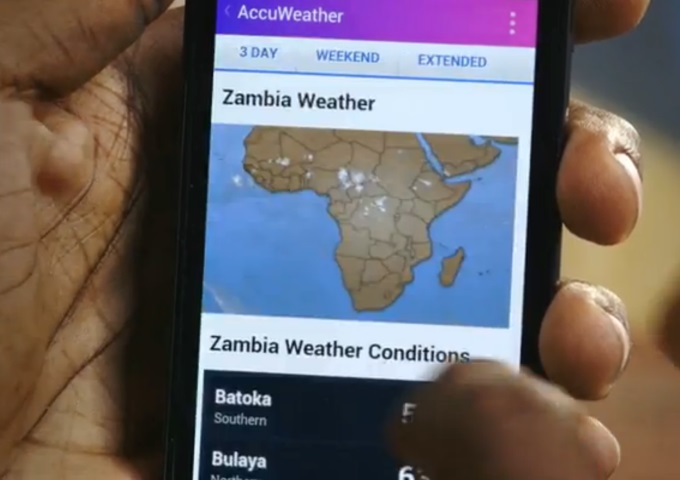
Written By: Anon.Dos
About eighty five percent of the fifty million people have difficulty affording the cost of internet packages. So with the partnership of Facebook, Samsung, Ericsson, MediaTek, Nokia, Opera Software & Qualcomm launched their app Internet.org; on Android and web application. It aims to bring affordable Internet access to everybody with a free set of accessibilities including Facebook, Messenger, Wikipedia, and Google Search. It likewise gives nearby locations for hospitals, clinics, jobs, climate, and also provides information on women rights. 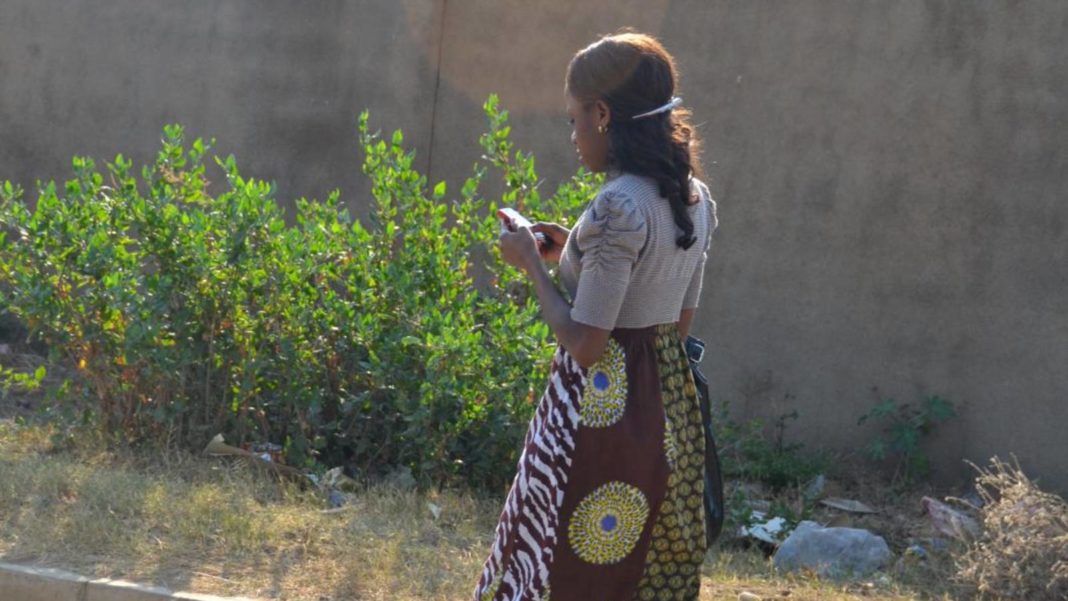
The application was launched in Zambia before being launched in other developing nations. Its local service provider in Zambia is Airtel that gives the free access to Zambians that use pre-paid or top up services on Airtel. The Facebook Zero has been giving faster data access because of it being a lighter version of Facebook since 2010. Yet this new Internet.org application with different services will be available as a conservative, standalone Android application. Integrated with Facebook Android application and freely accessible as a mobile website that the gimmick phones carried by the vast majority of Zambians today.
As said earlier Internet.org, Facebook’s indulgence with 6 different telecom organizations are likewise working on drones and satellites to convey Internet connection network to the fifteen percent of individuals who are not connected to the internet because they live on remote zones with no or limited cell towers in reach. The target to get more individuals on the Internet is rather condemned as a Facebook development strategy taking on the appearance of selflessness or simply to make realize of brand. In this, Internet.org’s application will help grow Facebook by providing its Airtel users with free internet. 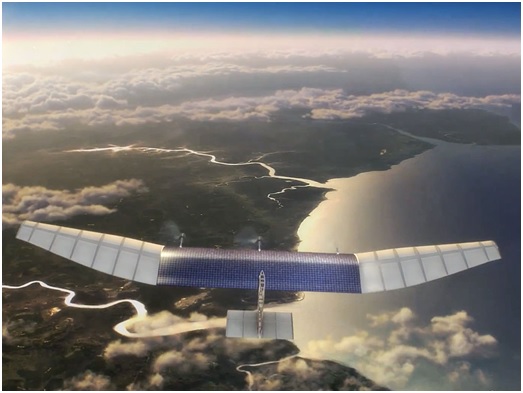
But at the same time Internet.org product manager Guy Rosen protects the venture’s altruistic side by repeating Mark Zuckerberg’s white papers, letting the world know that Internet access can have a significant constructive effect on different opportunities and education for people in the developing countries of the world. According to Rosen they’ve built this program because it covers more than Facebook and because of which they can increase the number of people who are connected to the internet which is nine percent a year; looks like they really want to make that happen faster.
A bit of web for free and then the rest at a price.
Rosen also said that Internet.org’s application is intended to give services to all Zambians free of charge, while spreading familiarity with why the Internet is helpful and may be worth paying for. The four hundred and twenty five billion individuals who aren’t on the Internet however could be on account of traditional cellular connections are accessible that are usually of two types. The individuals who want to use the Internet yet can’t bear the cost of it on the grounds that data packages designed by companies are at times not affordable. Rosen said in one of his interviews that many individuals don’t understand what the Internet really is. They don’t know what it could accomplish for their lives and occupation. It’s a dubious idea.
Obviously this point of view emphasizes that the Internet is dubiously useful for individuals, which may not be valid for all societies. But the application is intended for individuals who would want the Internet as they know about it and could manage the cost of it.
To promote the Internet.org application in Zambia there were call-outs on the Facebook application, an awareness strategy and notifications to Airtel users. The country’s residents could then visit Internet.org from their cell phone or smartphone for a totally free entry point. On the other hand, they can pay for a little information to download the Internet.org application that is only of eight hundred kilobytes or the Facebook for Android application where the Internet.org application is integrated into a tab. 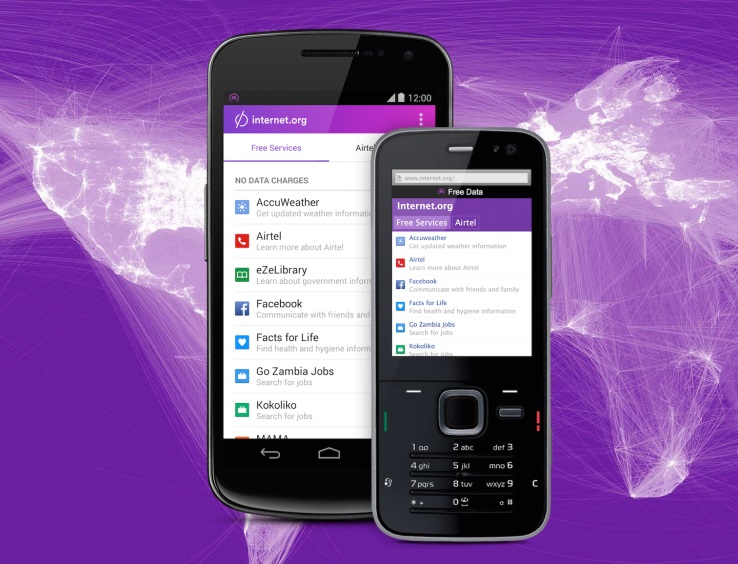
From these three indistinguishable entry points, users can utilize one of a choice of applications totally free of charge. These include:
• Facebook – Communicating with friends & family.
• Facebook Messenger – Direct messaging to friends and family.
• Google Search – Search engine though after the search results will require a data plan.
• Wikipedia – Internet Encyclopedia and all the internal Wikipedia links are free of charge.
• AccuWeather – Weather forecast which is important for farmers.
• Airtel – Careers information about internet packages.
• eZeLibrary – Information about the Zambian Government.
• Facts for Life (by UNICEF) – Information on health and hygiene including advice on pregnancy, childbirth, childhood illnesses, child development, parenting, protection, and child care.
• Go Zambia Jobs – Job search engine.
• Kokoliko – Job search engine.
• MAMA (Mobile Alliance for Maternal Action) – Information on maternal health
• WRAPP (Women’s Rights App) – Information about women’s rights and what needs to be done if they are being deprived of their rights.
• Zambia uReport (by UNICEF) – HIV and AIDS health information.
If you are thinking that why is Google in this application as they have their own internet accessibility project going on which is called Loon then understand that Facebook says that content providers in the application do not need to be official partners.
The Real Deal
Airtel pays for everything. Rosen in his interview to a journalist said that Facebook and Internet.org don’t pay whatsoever. Rather, the free access uses Airtel’s data plans.
If users of the app navigate to services outside of these services or use different applications, Internet.org shows users a road obstruction screen that cautions them they’ll be consuming their data package or need to purchase one. Zambians would then go to a neighborhood store and top-up with prepaid credit on Airtel if necessary. The model works on the grounds that Airtel accepts it can earn more money utilizing the free restricted access to drive users to purchase data plans and get back in their game that they were once the champs off. This works out well for locals because the individuals who can’t manage the cost of data plans get a ton assets at no expense in light of the fact that they’re viably sponsored by the individuals who can.
Facebook has been putting forth free access to a stripped down version of its service under the name of Facebook Zero since 2010 when it began with 50 operators in countries around the world. The program has been hailed for driving Facebook infiltration in African continent. 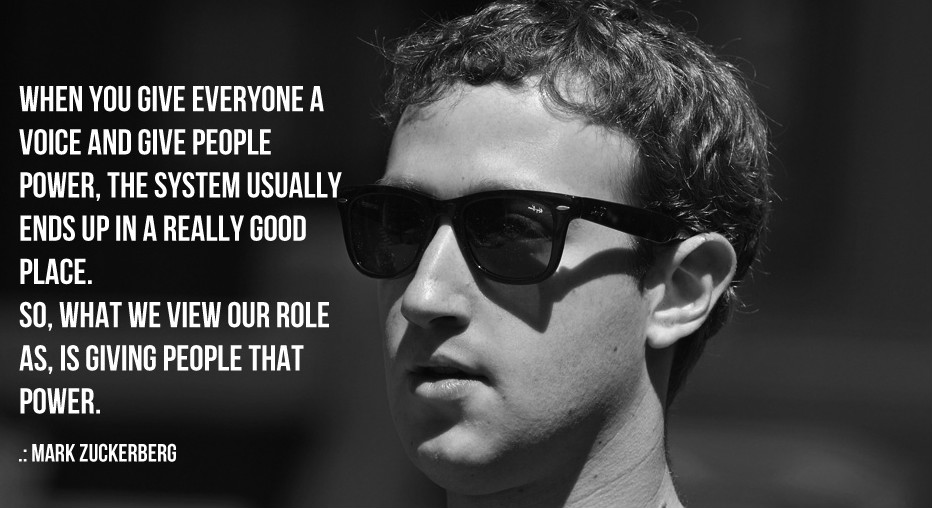
In past six months, Internet.org own arrangements have worked out as expected. On a week ago earnings call, Zuckerberg’s said that their starting associations in the Philippines, Paraguay, and Tanzania have helped around three million individuals connect with the Internet who had no access before. And back in February at Mobile World Congress, he highlighted how the arrangements are conveying clients to its career partners. Talking about a Filipino Network Globe when he said “what we’re seeing in Globe users is the number of people who are using the internet — the data — was doubled, and Globe subscribers have grown by 25%, so it’s a home run.”
Zuckerberg wrote in one of his publications namely “Is Connectivity a Human Right?” saying he accepts that each individual should have access to free and basic internet services – instruments for health, education, occupations and basic correspondence. This is a capable stance that could do a great deal of good. Still, it is a bit unnerving that Facebook and Internet.org could choose what qualifies as a basic internet usage that could be offered for free. Notice in the picture above that Twitter is not on the list that is because Facebook’s worldwide appeal makes it a profitable partner to careers that need flagship services to indicate for why individuals should need the Internet, so it gets to take charge.
In the event that this application is a success in Zambia, we can expect Internet.org will move it out in different transporters and nations in Africa, Asia, and South America where the same data affordability issue holds on. What’s more if Facebook might be one of the first ways people experience the Internet, they won’t forget it as they get more and more familiar with the internet. It looks to me that selfishness can be used as a plan for business.
_______________________________________________________________
Sources:
http://techcrunch.com/2014/07/31/internet-org-app/
http://en.wikipedia.org/wiki/Internet.org





You know what happens when we finally get to that last isolated Amazonian tribe? They contract diseases that they’ve never developed any immunity to, regardless of how well feeling whoever gets to them is. Much the same way the Native Americans were so susceptible to the diseases from the Old World.
Another thing, we are all beings of frequency, we all have electromagnetic fields surrounding our bodies. Things like WiFi in particular have negative effects on the biology of living organisms. Some even claim to be hyper-sensitive to it, and I’m not doubting them.
What does facebook do actually, oh that’s right collect more information than the NSA, and pays taxes by sharing the information with the government. What about Samsung, oh they make TV’s that watch you, 24/7, can be hacked, and can’t have their cameras turned off short of blocking them, though finding the microphone would be a little harder. They also make lovely sentry guns to put on the Korean border; http://www.cnet.com/news/korean-machine-gun-robots-start-dmz-duty/ What about Google? I don’t even want to get into it, but PLENTY OF EVIL.
Point being, these corporations and their conspiracy to rape the electromagnetic field of every living creature on the planet is evil. And for as much as anyone can delude themselves into believing everyone “wants” this, there is a more powerful reality that “Oh hell no we don’t”.
“The four hundred and twenty five billion individuals who aren’t on the Internet…”. 425-BILLION? BILLION? 425BILLION? Apparently this article was written in the future and time-traveled back to a point where the entire human population is under 10 billion. That, or the writer/editor is clueless. I’ll leave it to you to decide.
eu i’m in zambia and never seen any one use this